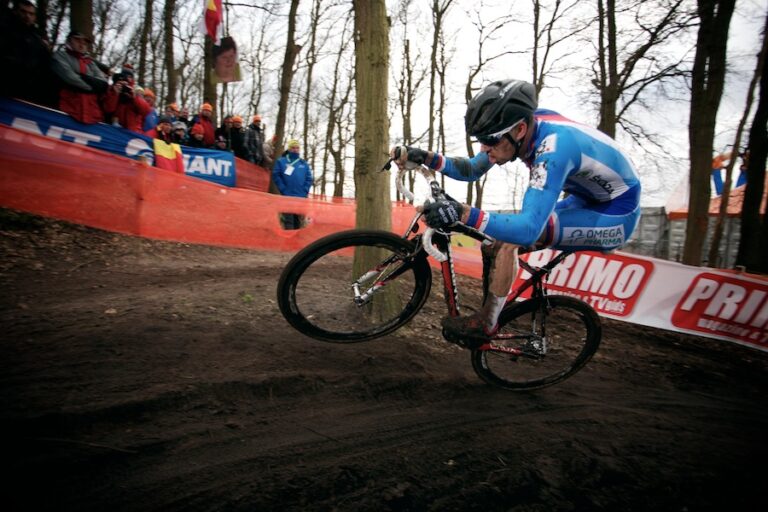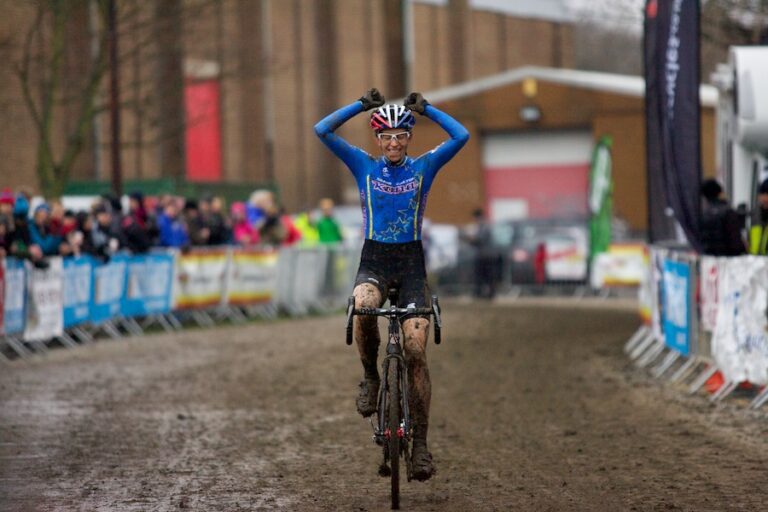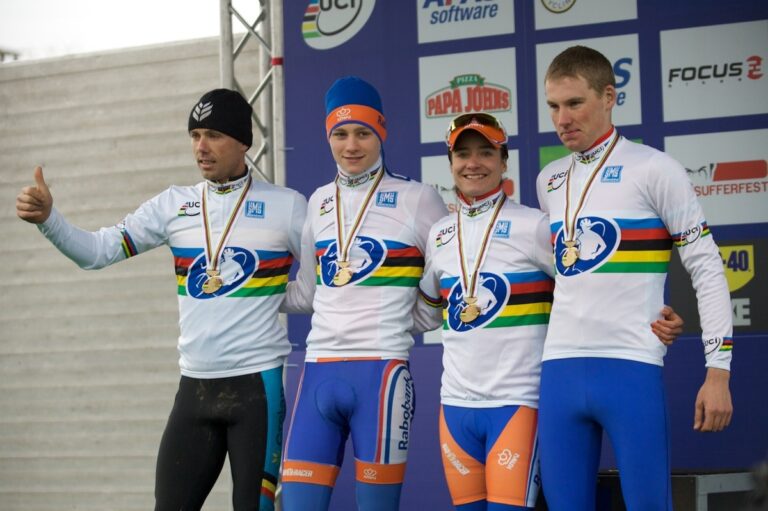Asked to describe the most important qualities for a successful cyclo-cross rider, twice American champion, Jeremy Powers, answers without hesitation and in a single word. “Explosiveness.”
The emphasis is increased by Powers’ reputation, justified on the evidence of our interview, of being a man, not of few words, but of many. His identification of the ‘cross rider’s most important skill is followed by the briefest pause before he elaborates, expanding on his point with a gathering pace that, on the bike at least, must be familiar to his rivals.
It is possible Powers has been asked the same question many times before and that his immediate reply is owed to little more than familiarity, but his is not the wearied response of the bored interviewee. There is something deeply infectious about Powers’ enthusiasm, and as he describes what it takes to succeed in the high intensity world of cyclo-cross, where crashes and hour-long efforts at maximum heart rate are merely part of the job, it is if he is back in the saddle.
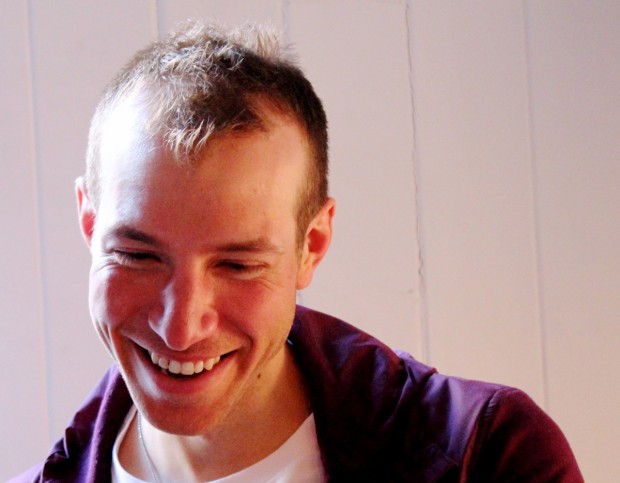
“It’s capitalising on other people’s mistakes. You push and you push and you push and you wait for that one moment…” He snaps his fingers. “Someone bobbles, or doesn’t get back on, or clips a barricade, and that’s your moment.”
He continues, highlighting the different demands of road racing and ‘cross by drawing an unlikely but insightful analogy with board games. Road cycling, he says, is like chess. “Take my pawns, put them up front, use them up, take back, the king comes out…” He describes each move in the same tone to emphasis the monotony. “With cyclo-cross, it’s more like checkers. Boom, boom, boom. You take four at a time.”
Powers has flown to London to spend time as a guest of his sponsor, Rapha, and will travel to the Netherlands to compete in the world cyclo-cross championships this weekend in Hoogerheide. ‘Cross is still a young sport in the United States and these are early days for American riders trying to create an impact in its European heartland.
Powers’ journey is illustrative of his countrymen and women’s attempts to find a formula that will allow them to compete at their best in a different time zone and in vastly different conditions to those of home. The day before our interview, he caught a morning flight from New York to reduce jet lag and rode out in Hertfordshire the same afternoon. The inevitable rain that marked his arrival, he embraced as a further bonus: riding in mud is one area of performance on which he is trying to improve. Powers jokes about buying property in the States and setting up a sprinkler system. He might save himself the trouble, I suggest, by moving to England.
Kati Compton is the obvious example of an American rider who has found the right formula. Twice now, and in consecutive years, she has been crowned women’s world cup champion, and perhaps more significantly, beat the Netherlands’ Marianne Vos in two consecutive rounds of this year’s competition to defend her title. Earlier in our interview, Powers’ provided another one word answer to describe the appeal of cyclo-cross – “community” – and in the small, but not exclusive world of elite cyclo-cross, Compton’s methods have not passed unnoticed, by Powers at least.
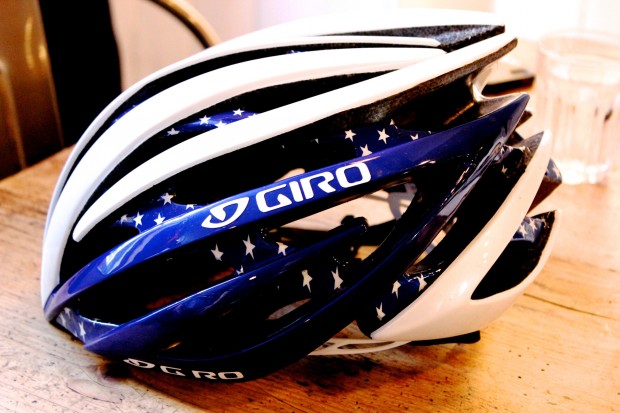
He talks about “Kati’s model”, the formula for success she has discovered by her own efforts, and how other American riders might pick and choose parts of it. “She comes over, she stays with a family, she’s set on Euro time,” Powers explains. “She comes back for the [American] nationals, but stays on European time. It’s a short trip, and she goes back to Europe.”
Powers agrees that the current generation of American ‘cross riders are pioneers, and while not quite the Pilgrim Fathers in reverse, he is keenly aware of the depth of tradition which he and his compatriots face when they compete in Europe, and especially in Belgium. He reels off a detailed list of the serious ‘cross racer’s concerns, from what to eat for breakfast to tyre pressures. “They have all these things that they do – Belgian-isms if you will – and we’re still developing that because we’re an up and coming nation in a relatively new sport.” Experience, he seems to believe, is an inestimable, if not insurmountable advantage. When the conversation turns to the iconic European courses, and, in particular to the sands of Koksijde, Powers contrasts his own experience there with that of Ben Burden, a Belgian who for the last three years, has raced in the States, and who, Powers says, rode twice-weekly training sessions at Koksijde from the age of eight.
Powers is certainly not in thrall to his European counterparts and says he does not concern himself with their training methods or techniques; rather, he is focused on his own efforts, how he might improve his own performances, whether by running more stairs in training, practicing more in the mud (he has abandoned the turbo trainer on wet days in recent years), or doing more core work. “I look to myself and it’s more about me in a way, as pompous and as weird as that may sound. It’s an individual sport. Road racing is a team sport. Cyclo-cross is very much the strongest rider wins.” He has recently called time on a 10-year road career with the American UCI Continental road team, Jelly Belly, and hopes now to spend from February to May in base training, before contesting local events in June, and beginning in July, serious competition.
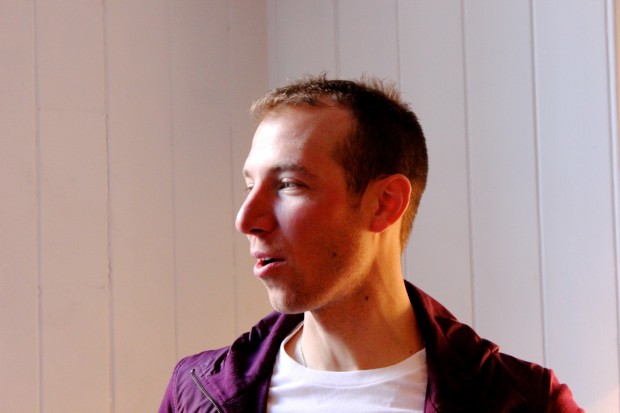
His decision to quit the road has been based at least partly on the explosion of the American ‘cross scene and its ever-lengthening season. Where once it was feasible to move off road solely during the winter months, the US season now offers racing from August until the third week January. “It is 100 per cent different,” Powers says of the transformation of the US ‘cross calendar.
The boom, he believes, has been fuelled by the combined efforts of the scene’s stalwarts, event promoters, and the riders. He uses the word ‘community’ to describe the fuel to the ‘cross scene’s fire: an interesting parallel with those close to the European scene, who use the same word. Powers also believes that there is something intrinsic to the appeal of cyclo-cross, the proximity of fan to rider, that encourages that sense of community. He contrasts a ‘cross race and the ability of the spectator to see the riders pass eight times in from a single vantage point with a road race in which riders step from the team bus, roll off the start-line, and promptly disappear.
‘Cross is a very different spectacle in the States, he says; one he compares to a college football game. Fancy dress is likely to replace mud boots, and barbecues to replace waffles. Powers has successfully captured much of that scene, as well as the life of the riders and promoters who create it, in his on-line TV show, Behind the Barriers.
Followers of the European ‘cross scene will see much more of Powers in the 2014/15 season. He plans to compete in as many rounds of next season’s World Cup as possible, and if, as he believes, there will be nine rounds next season, he intends to race in more than six. Despite his commitment to improving all areas of his game, Powers believes it will be the fast courses on which he will shine. Should he do so with a brightness to dazzle his European competitors, world cyclo-cross will have a new and charismatic champion.
Jeremy Powers was in London as a guest of the clothing brand Rapha, the co-sponsor of Team Rapha-Focus.

